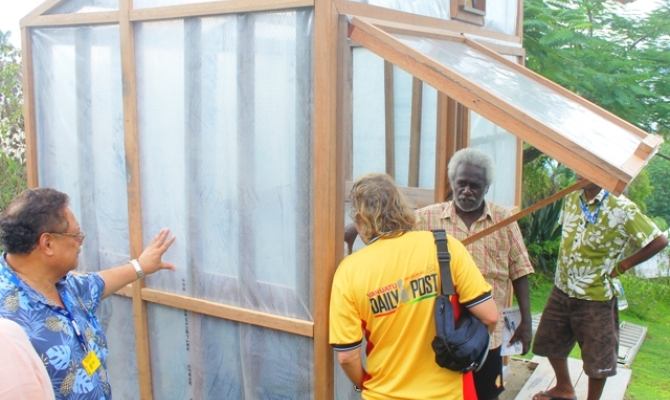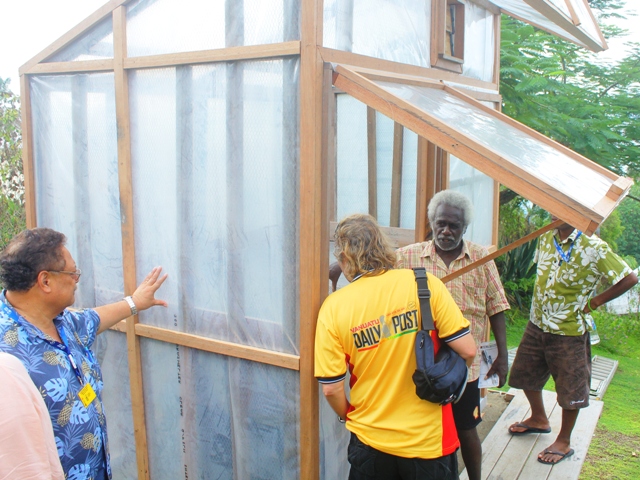
In commemoration of World Environment Day, the theme of which is Think. Eat. Save - The sun, durable sheeting and a shelf; are the tools that will help prepare a constant flow of food to people on the low lying atolls of Ontong Java in the Solomon Islands.
A solar drier, based in Honiara, is one of the most recent accomplishments under the Pacific Adaptation to Climate Change Project in the Solomon Islands. Designed to prepare and dry food for shipment to the Ontong Java communities, the dried food will remain edible for up to a year. This alone will help ease their worry that they could run out of food to feed their community.
"We have just started this particular activity and are still to see the results, but we hope it is successful, our next step is to build a portable solar drier unit that can be dismantled, transported and then set up elsewhere," said the PACC Solomon Islands coordinator, Mr. Casper Supa.
The Pacific Adaptation to Climate Change Project has a wide reach across 14 Pacific island countries, helping them to adapt in three key areas – coastal management, food production and food security as well as water resource management.
Funded by the Global Environment Facility and the Australian Government, implemented by the United Nations Development Programme and executed by the Secretariat of the Pacific Regional Environment Programme; different countries have selected their key focus area and are carrying out national activities to adapt.
In the Solomon Islands, food security and production is the climate change challenge for which adaptation activities are underway to help a community on Ontong Java.
One activity is the introduction of new crops that are resistant to the agricultural challenges on a low lying atoll in partnership with traditional farming methods that help improve the soil. These new crops consist of new varieties of breadfruit, taro, cassava, sweet potato and banana.
"We are making sure that all these crops undergo a quarantine process before being introduced into Ontong Java so that we don't bring pests or diseases from the mainland (Guadalcanal) into the low lying atolls. We want to ensure this adaptation project strengthens food production on the community, not destroy it," said Supa.
Meanwhile on Honiara the PACC team is working using simple, cost effective activities that are easy to maintain and are applicable in their communities to use the food available from the mainland to send to Ontong Java for storage.

A simple solar drier suited to Pacific communities made with durable sheeting and a 5 meter shelf has been constructed, this can dry a wide range of crops to be packaged and stored until needed. The length of time needed to dry and process the food is dependent upon the sun.
A second larger drier however, has been built containing traditional ovens so should there not be enough sun to stimulate the drying process, the heat from the ovens will suffice.
In this instance it is a mix of the old and new technologies to help strengthen food security, ensuring their communities never have to go without enough food.
"We think the solar driers are a good adaptation option for people to store their foods, this is a storage method that is part of our culture and we're reviving this to help our people adapt to climate change."
For more information on PACC Solomon Islands.